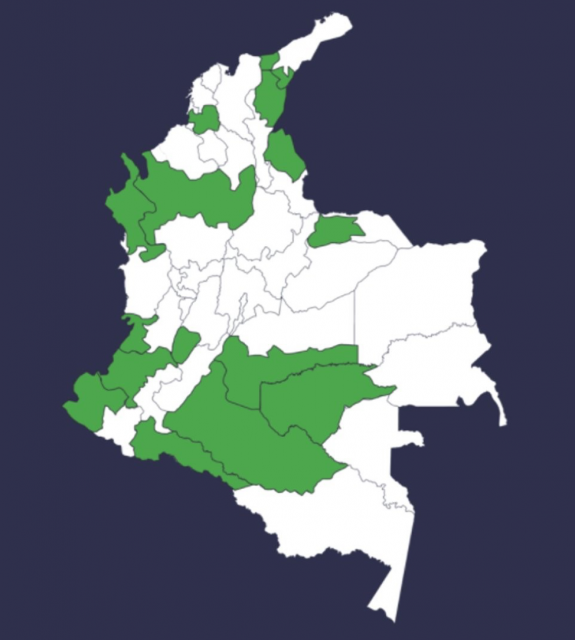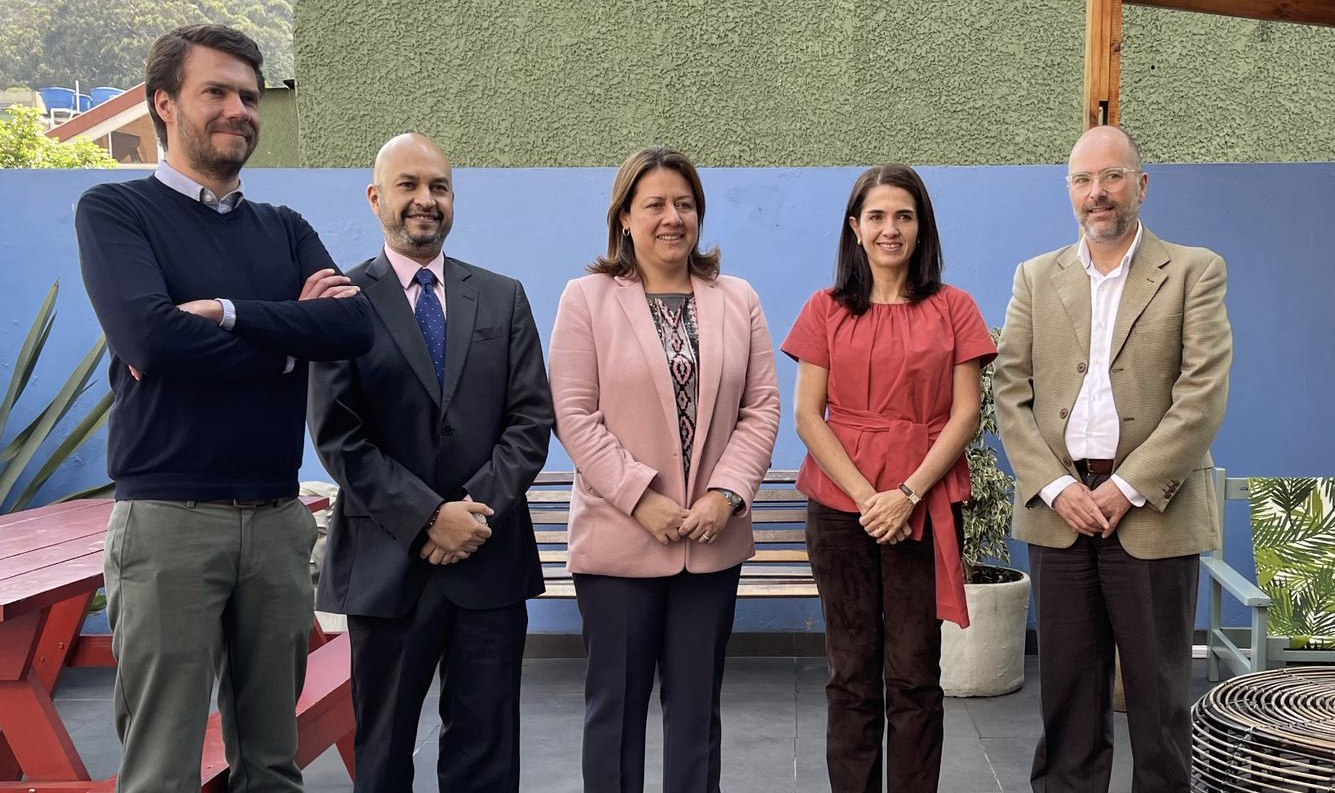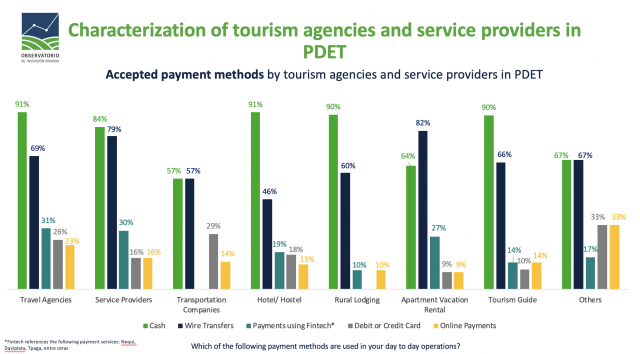CIPE and its partner Jaime Arteaga & Associates (JA&A) manage the Observatory of Private Investment in the Zones Most Affected by the Conflict, a collection of economic indicators that measure economic activity in post-conflict regions of Colombia covered by the national government’s peace policy (PDETs, in Spanish).
The Observatory, founded in 2018, is the only resource of its kind in Colombia to systematically analyze private sector investment data in PDET regions and aid policy makers in measuring the impact of investment incentives in those regions.

By analyzing the Observatory data, CIPE and JA&A identified tourism as a business opportunity in PDET regions. The tourism industry’s potential for job creation and economic growth stems from two major factors: (1) the diversity of the regions makes the country an attractive national and international destination for several types of tourism, and (2) the value chain reaches local service and product providers to stimulate the regional economies.
In this regard, the Observatory conducted a survey of tourism entrepreneurs from PDET regions. On November 11, the Observatory team hosted an event called “Tourism in PDET Regions” to present the results.
The event included a panel discussion between Maria Ximena Lombana, Minister of the Colombian Ministry of Commerce, Industry and Tourism (MINCIT), and Julian Torres, the Executive Director of the Colombian Association of Travel and Tourism (ANATO), moderated by CIPE Colombia Office Director, Ángela María Vélez. The panel discussed the survey findings and recommendations, and the role that MINCIT and ANATO play in helping the industry grow, especially nature tourism.

The Road Ahead for the Tourism Industry in PDET Regions
Based on the results of the tourism survey, the Observatory team identified four main categories of barriers for tourism providers in PDETs: legal, economic, operational, and security.
Notably, two specific barriers are the limited methods of payment providers can accept and the lack of implementation of existing state-backed benefits for tourism providers. Most tourism businesses receive cash, while bank transfers are the second most common payment method.
These two types of payments can be very limiting for tourists compared to payments made through fintech platforms, online, or by using debit and credit cards. Many tourism businesses and entrepreneurs are currently not using the state benefits available to them. A wider implementation and socialization of such benefits could help tourism providers obtain credit resources, gain access to the promotion of their businesses and, ultimately, strengthen their businesses to that generate more income and development for the PDET regions, without affecting their ecosystems.

The survey also gauged the perspective of tourism providers as to creating national and international partnerships. Tourism providers in PDET regions are disconnected from the national and international tourism value chains. Nonetheless, across tourism providers 62% stated they are open to creating partnerships, a strategy that would potentialize the development of the infrastructure required for the industry to grow. A more robust and better-connected tourism industry also means growth for other sectors in PDET regions through the links that tourism establishes with other local vendors.
Globally, tourism was one of the industries that was most affected by the Covid-19 pandemic, so efforts to help the industry recover are critical. To adapt to current circumstances in Colombia, MINCIT helped tourism providers implement measures to protect the safety of providers and tourists, making of Colombia a regional leader in biosecurity. Additionally, MINCIT and ANATO work together to train tourism providers to comply with current regulations and become more competitive by improving the services offered.
ANATO sees the expansion of the tourism industry as an opportunity to integrate ex-combatants into society as tourism operators. This social reintegration effort would make tourism an opportunity to implement the Peace Accords beyond the economic growth that the industry’s activities produce. Additionally, ANATO encourages providers to capitalize on the diverse types of tourism that Colombia offers, including post-conflict tourism, cultural tourism, and nature tourism.
Nature tourism has high growth potential due to the biodiversity of Colombian regions. The protection of the natural resources that make nature tourism a possibility in the first place is one of the biggest concerns for tourism providers. As such, it was also one of the main talking points of the discussion during the “Tourism in PDET Regions” event with MINCIT and ANATO.
This year, Colombia passed a decree of sustainability policies for the tourism sector, of which MINCIT oversees the implementation. Colombia is now one of the 12 countries in the world with sustainable tourism policies. To ensure the implementation of the decree, the MINCIT works alongside local national corporations, chambers of commerce, universities, town halls, and unions to raise awareness and train tourism operators.
“We launched a policy called United by Nature, which seeks to adopt a national long-term strategic vision that harmonizes economic development and sociocultural objectives with the need to protect out natural capital.” -María Ximena Lombana
MINCIT also developed a guide on sustainable tourism best practices for providers to identify, prevent and mitigate the impact of tourism activities on the environment. The guide has a practical approach and suggests easily executable practices to reduce the barriers for implementation to operators.
CIPE and JA&A will continue sharing the recommendations and findings produced from the analysis of the survey and working with relevant institutions to support the growth of the tourism industry in PDET regions.
Published Date: January 06, 2022
